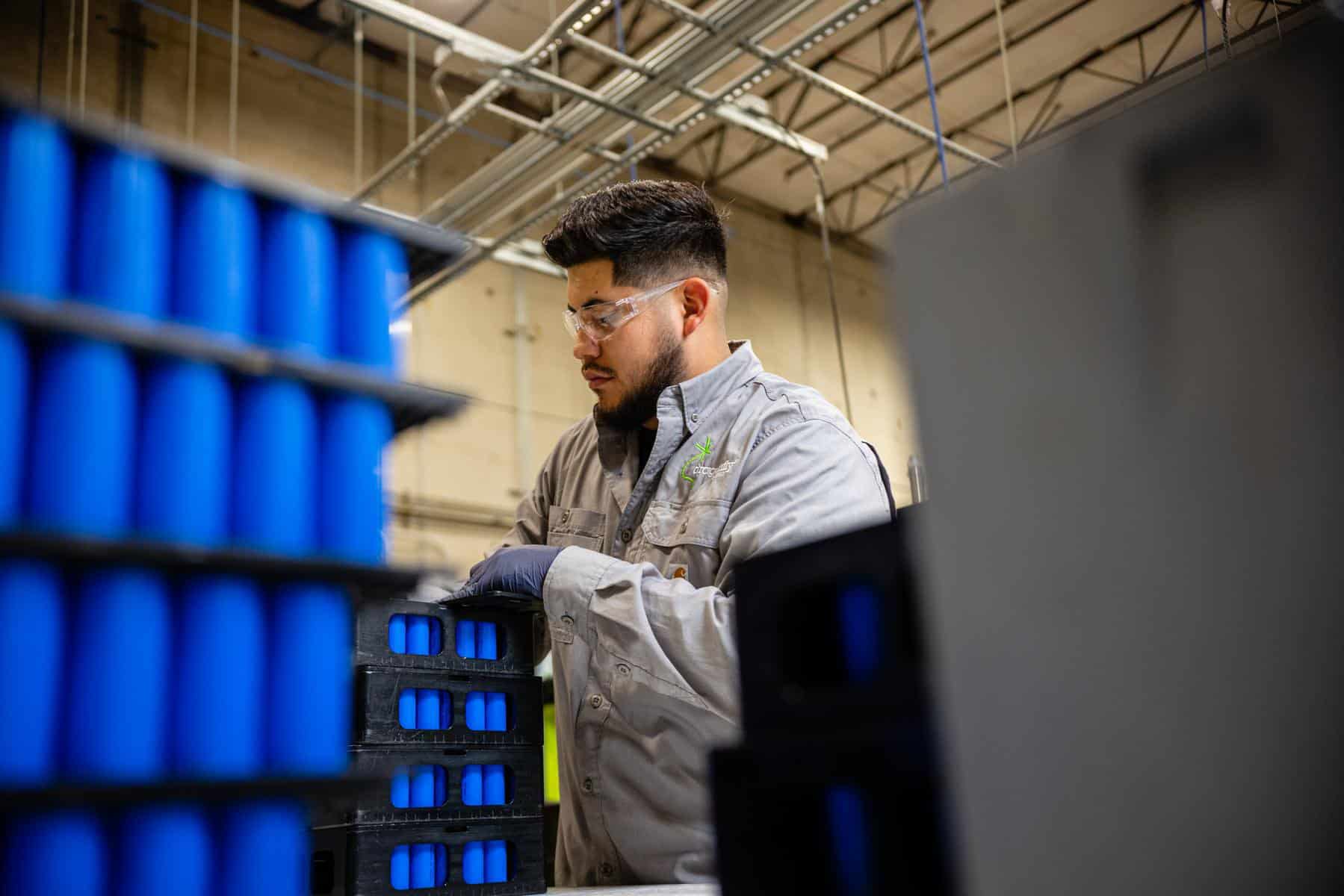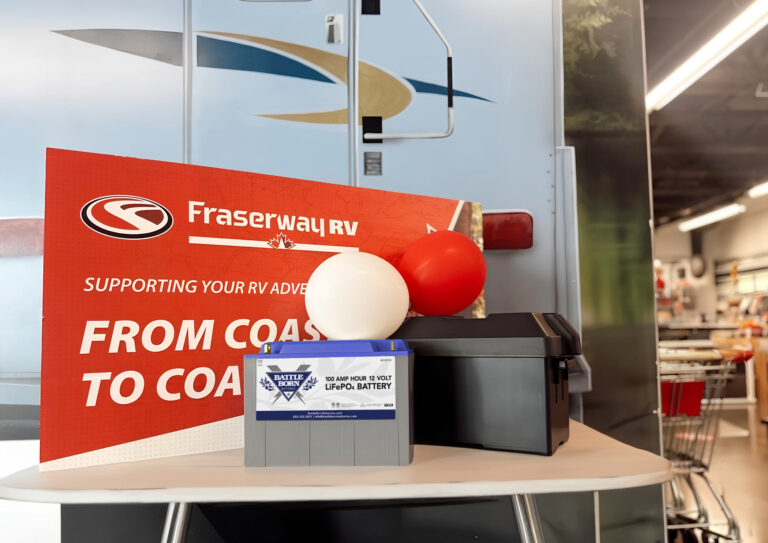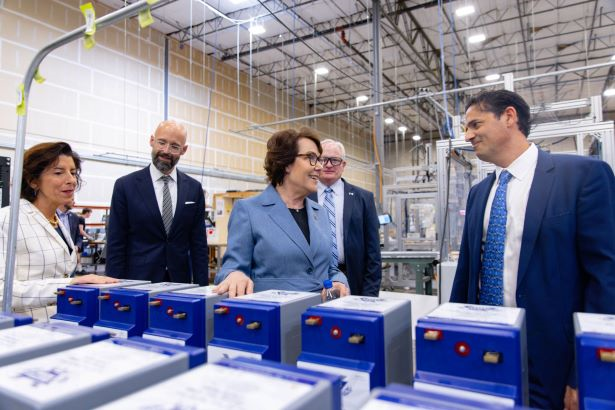From smartphones and electric vehicles to industrial power supplies and laptops, batteries are a driving technology in our lives. Yet, due to their non-biodegradable elements, the widespread use of batteries raises environmental concerns. When not properly discarded, these substances can leach out, causing soil contamination as well as water and air pollution. Battery recycling mitigates these dangers by keeping harmful materials out of landfills, repurposing useful parts, and aligning with a circular economy's objectives.
Recycling batteries offers the dual benefit of reducing environmental damage and opening up significant economic opportunities. Here, we explore how battery recycling can transform waste into a valuable resource and look at the financial advantages for businesses.

General Benefits of Battery Recycling
Battery recycling extracts valuable materials from spent batteries, using them to create new batteries or other products and aiding the energy transition. For instance, lithium-ion batteries, commonly present in electronics, electric vehicles, vans, boats, and off-grid setups, contain sought-after metals such as lithium, cobalt, nickel, and manganese. These metals have broad applications across industries, including battery production, aerospace, and defense.
Battery recycling, therefore has numerous benefits for the environment, society, and businesses.
Conservation of Resources and Energy Savings
Recycling batteries allows for the recovery of valuable materials such as copper, lithium, cobalt, and nickel. This reduces the need for mining and helps conserve natural resources.
In September 2023, Aqua Metals together with Dragonfly Energy, collaborated to successfully manufacture a lithium-based battery cell from sustainably recycled lithium. Aqua Metals provided Dragonfly Energy with high-purity lithium hydroxide, sourced from recycled lithium-ion batteries. Utilizing our proprietary dry electrode coating technology, Dragonfly Energy successfully produced a standard CR2032 lithium battery cell.
The process of recovering materials from recycled batteries uses substantially less energy than extracting and processing virgin materials from the earth. This further contributes to energy conservation and a reduction in greenhouse gas emissions.
Reduction of Environmental Pollution
Lead acid batteries contain toxic substances like lead, cadmium, and mercury, which can filter into the ground and waterways if not disposed of properly. Recycling prevents this pollution, protecting ecosystems and human health.
Compliance With Regulations
There are increasingly strict regulations regarding battery disposal and recycling. By recycling, businesses comply with these regulations and thus avoid fines and legal liabilities.
Waste Reduction
Recycling helps reduce the volume of waste sent to landfills and incinerators, alleviating pressure on waste management systems and reducing the associated environmental impacts. For instance, Redwood Materials, a Nevada-based battery recycler, has introduced an online platform where car dismantlers can appraise and sell used EV battery packs for refurbishment. The company claims to recover 95% of crucial battery elements and supplies manufacturers with recycled anode and cathode materials suitable for lithium-ion and nickel-metal hydride batteries.
By 2025, Redwood will produce enough anode and cathode for 100 GW/h of electric vehicle usage—enough to power a million EVs yearly—and aims to increase this capacity to power five million EVs annually by 2030.
Different Financial Benefits of Recycling Batteries for Businesses
Just as the environment benefits from battery recycling, so too can businesses. Financial incentives for companies include:
Tax Incentives
Some governments offer tax incentives or credits for businesses that participate in environmentally friendly practices, including recycling. These can effectively reduce the overall tax burden for a company.
Cost Savings
Certain jurisdictions charge businesses a fee for disposing of batteries as hazardous waste. By recycling batteries, they can avoid the costs associated with such waste disposal.
Material Credit
Recyclers often pay for valuable materials recovered from batteries. This can represent an additional revenue stream for businesses that generate a large amount of battery waste.
Manufacturer Take-Back Programs
Battery manufacturers and electronics companies may offer take-back programs where they accept used batteries for recycling, sometimes offering a discount on new purchases or other incentives to encourage this practice.
Why Lithium-Ion Batteries Are the Best Option for Sustainability
Lithium-ion (Li-ion) batteries are often considered the best option for sustainability in the realm of rechargeable battery technology. They have a high energy density, meaning they can store more energy per unit of weight than most other types of batteries. This makes them ideal for use in electric vehicles (EVs), boats, recreational vehicles (RVs), and portable electronics, where weight and space are critical considerations.

Li-ion batteries are more efficient than other battery types because of their lower self-discharge rate. They retain charge for longer when not in use—an important feature for both consumer electronics and energy storage applications. In addition, they typically have a longer lifespan than other rechargeable batteries. Li-ion batteries can handle hundreds to thousands of charge and discharge cycles before their capacity starts to degrade. This reduces waste as they don’t need to be replaced as often.
Other key reasons that Li-ion batteries are the best match in terms of sustainability include:
Reduced Carbon Footprint
The widespread adoption of Li-ion batteries, particularly in the transportation sector, has the potential to significantly reduce greenhouse gas emissions by enabling the shift from fossil-fuel-powered vehicles to electric ones.
Support for Renewable Energy Integration
Li-ion batteries are well-suited for working in conjunction with renewable energy sources because they can efficiently store intermittent energy production for later use, thus aiding in the reduction of fossil fuel reliance and enhancing the sustainability of energy systems.
Driving New Sustainability Standards
Green energy is more than the latest trend, it’s a new standard in energy storage—and there are many ways in which businesses can benefit. With innovative technologies and the power of lithium iron phosphate (LiFePO4) units, Dragonfly Energy is dedicated to bringing reliable green energy to multiple markets.
Our industry-leading LiFePO4 batteries are recognized for their chemical stability, advanced technology, and reliability. In addition, our technical specialists are ready to advise regarding installs or units best suited for your system and needs.
Whether you’re looking to build long-term storage solutions for off-grid setups, upgrade your current batteries, or power trips over land or water, our sustainable solutions are long-lasting and come with lifetime technical support. Find out more. Chat with us today.



